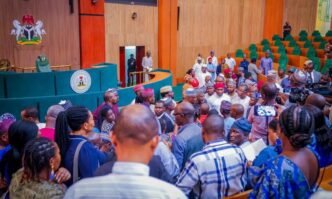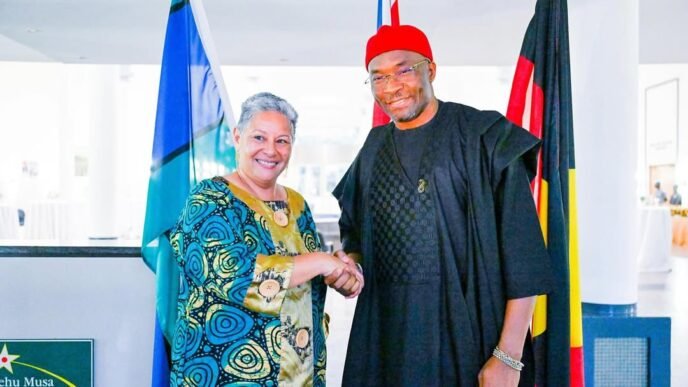HB: 1194 A BILL FOR AN ACT TO ALTER THE PROVISIONS OF THE CONSTITUTION OF THE FEDERAL REPUBLIC OF NIGERIA, 1999 BY DEFINING ACTS THAT CONSTITUTE TORTURE, INHUMAN OR DEGRADING TREATMENT, AND FOR RELATED MATTERS Bill Sponsor: Hon. Daniel Asama Ago. Bill Progress: Committee Stage
This Bill seeks to alter Section 34 of the Constitution of the Federal Republic of Nigeria, 311999 to provide for a definition of torture, inhuman and degrading treatment to include parading persons arrested by the police or any other law enforcement agency in the public.
In a significant move to enhance human rights protections in Nigeria, HB 1194 has been proposed as an amendment to the 1999 Constitution of the Federal Republic of Nigeria. This legislation aims to provide clear definitions and a robust framework concerning torture, inhuman treatment, and degrading treatment within the Nigerian legal context.
The primary purpose of HB 1194 is to articulate specific acts and practices that fall under the categories of torture and other cruel treatments. By defining these terms within the legal framework, the bill aims to eliminate ambiguity and provide a clearer understanding of what constitutes a violation of human rights. Currently, the lack of precise definitions can lead to inconsistent interpretations and enforcement of laws related to torture and inhumane treatment, making it challenging to hold offenders accountable.
One of the key aspects of the proposed bill includes the phrase “and for related matters,” suggesting that it may address additional consequential issues arising from the definitions it introduces. This could encompass various components such as enforcement mechanisms to ensure the prohibition of torture is effectively implemented, penalties for those who commit such acts, and frameworks for providing redress to victims. By addressing these related matters, HB 1194 seeks to create a comprehensive approach to combating human rights violations.
The introduction of HB 1194 reflects a growing recognition of the need to strengthen the constitutional prohibition against torture and inhumane treatment in Nigeria. Advocates of the bill argue that articulating specific definitions will enhance accountability and provide victims with a clearer path to justice. It is hoped that this legislative initiative will not only prevent human rights abuses but will also foster a culture of respect for fundamental human rights across the nation.
As discussions surrounding the bill progress, various stakeholders—including legal experts, human rights organizations, and lawmakers—are expected to contribute insights into its potential implications. The committee responsible for reviewing the bill will likely consider inputs from these groups to ensure the legislation is as effective and comprehensive as possible.
If passed, HB 1194 has the potential to transform how human rights violations are addressed in Nigeria. By providing explicit legal definitions and outlining related matters, the bill could enhance the protection of individual rights and contribute to a more just legal system.
In summary, HB 1194 represents a crucial step in the ongoing effort to safeguard human rights in Nigeria. Through its proposed amendments, the legislation seeks to establish clear legal standards against torture and other cruel treatments, ultimately aiming to bolster the constitutional framework and promote accountability in the protection of human rights. As the legislative process unfolds, the eyes of advocates and the public alike will be on the outcome and the potential impact of this important bill.










